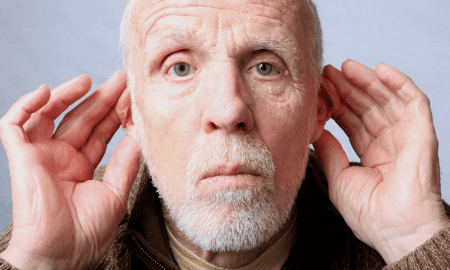
Whether you’re struggling with a mental health disorder or just need someone to talk to, support groups allow you to meet people who have been through similar experiences. In the US, millions of people have attended support groups as a way to address mental health concerns, deal with chronic medical conditions, or manage emotional problems.
Mental health practitioners recommend attending support group sessions for a myriad of disorders, including eating disorders, depressive disorders, anxiety disorders, and substance use disorders. Today, there are thousands of support groups throughout the US. Therefore, it’s worth looking at the role of support groups in the recovery process. Let’s look at what they are, how they can benefit you, and what you can expect.
What Are Support Groups?
A support group is a gathering of people who have had similar experiences and are facing similar problems. As the name implies, group members provide each other with support, advice, and encouragement. Common examples include addiction support groups and those targeting specific mental disorders or medical conditions.
Mental health practitioners and physicians recommend attending these groups for mental health support and as a part of the recovery process. It’s often recommended in combination with evidence-based treatment methods like pharmacotherapy and psychotherapy.
The Role of Support Groups in Recovery
While treatment methods involving therapy are certainly effective, support groups help bridge the gap between professional treatment and emotional support. Struggling with poor mental health or a disorder can be an isolating experience. Sure, you can reach out to family and friends, but it’s likely that they don’t understand what you’re going through.
Practice Healthy Coping Strategies
Whether you struggle with a depressive disorder or recurrent panic attacks, you need to learn new ways to cope. When undergoing treatment, your therapist will likely guide you on different ways to cope with your symptoms. But before you can implement those strategies, it helps to practice them.
Support groups offer you an opportunity to practice what you’ve learned so far. As you interact with people who have had similar experiences, you can learn new coping skills, too. This includes tips on meditation, boundary-setting, and more.
Feel Less Alone
Dealing with mental health struggles can be an isolating experience, which can exacerbate symptoms further. Attending support groups allows you to share your experiences with others and hear what they have to say, as well. By telling your story (or just hearing others’ stories), you’re able to tackle feelings of loneliness. It’s also a way to get insight into how other people overcame a similar situation that you’re currently facing.
Build Social Skills
It’s common for people with a mental disorder or mental health struggles to have poor social skills. It happens when your symptoms are highly debilitating and lead to withdrawal from social situations. Attending support groups allows you to build your social skills by interacting with other members. With time, you can learn to be comfortable around other people and interact with them effectively.
Stay Committed To Treatment
When you struggle with a mental disorder, treatment adherence is challenging. There may be days when you can’t even muster the strength to get yourself out of bed, let alone go to therapy. Tough days will come, and it’s easy to lose hope when they do. Fortunately, if there’s one thing you do stand to gain from support groups, it’s hope.
These groups play an important role in ensuring adherence to treatment by acting as a source of motivation and encouraging you to take accountability for your recovery. Seeing people at a later stage in the recovery process will motivate you to continue treatment and achieve your goals.
Help Other People with Similar Struggles
Over time, you’ll be able to help other members of the support group as well. As you accomplish new milestones, you can become one of the group’s success stories – a source of hope and motivation for new members.
This feels rewarding, and for good reason: studies show that prosocial behavior can improve self-esteem and reduce stress, which makes it beneficial for your mental health, too. It’s one of the main reasons clinicians recommend continued attendance of support group meetings; it consistently benefits both old and new members,
Increases Self-Understanding
Because support groups offer many opportunities to learn from and help others, attending meetings puts you in situations where you learn more about yourself and others. It’s why they play an important role in building self-understanding, self-acceptance, and self-esteem. By expressing yourself and responding to other people’s experiences, you start understanding yourself a little better.
You also start understanding your strengths and how they helped you overcome challenges so far. This improves your confidence and self-esteem to address similar situations down the line.
Complements Therapy
Although psychotherapy is highly effective for long-term recovery and can’t be substituted, most clinicians schedule 1-2 sessions per week. A lot can happen in the time between two scheduled sessions: you may encounter a stressful situation or need emotional support. In this case, support groups provide an environment where you can seek advice and get support from others. This eases your emotional burden and helps you cope with stressful situations.
What To Expect In a Support Group
While the specifics depend on the type of support group you’re attending, just about all groups have clear guidelines about who can and can’t attend. If it’s a support group for people with social anxiety, you can only join if you’re struggling with social interactions and functioning in social situations.
All support groups have a facilitator to ensure that the group stays on track and follows a specific agenda. The facilitator also makes sure that everyone gets a chance to speak (if they want to). Each meeting will follow a structure that includes welcoming everyone, introducing new members, starting a group discussion, and ending the meeting.
Conclusion
Overall, support groups can complement your treatment journey by allowing you to meet other people who have faced similar challenges. It plays a crucial role in your recovery process by helping you practice coping strategies, learn new techniques, help others, and stay committed to the recovery process. At the same time, they help you realize that you’re not alone, build social skills, and improve self-understanding.

















Follow Us